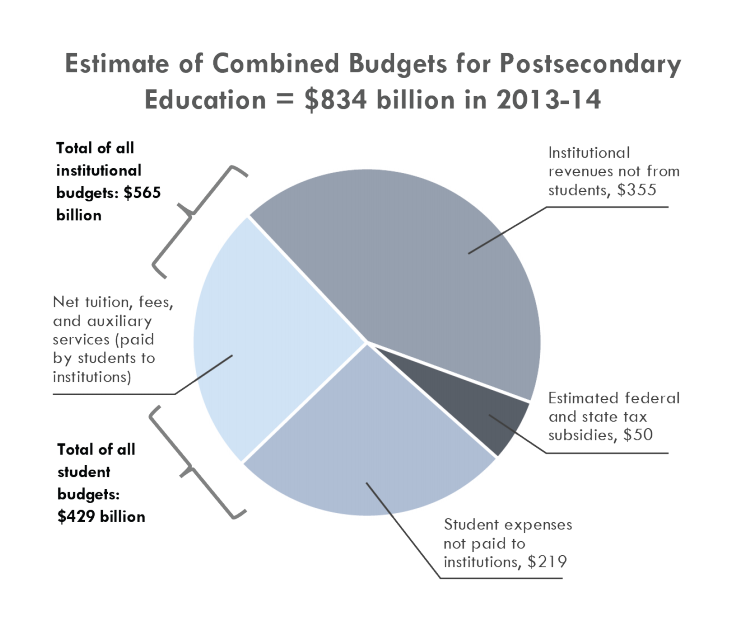Online Hub Offers Complete Picture of Higher Ed Finance
Postsecondary faculty and administrators say that the insufficient availability of aid is the biggest financial challenge to low-income students, according recent research from the Bill & Melinda Gates Foundation. Now, the private foundation is supporting a project that explores sources of funding for higher education, particularly for low-income students.

Image: The "Understanding Higher Education Finance" project.
Each year, the United States invests altogether more than $800 billion in postsecondary education, according to the “Understanding Higher Education Finance” project, which was also produced by Nate Johnson, the founder of Postsecondary Analytics and a higher education finance consultant. The project’s goal is to “direct attention to the overall ‘ecosystem’ of postsecondary funding, rather than focus on just one component,” according to the announcement.
“Most sources of funding for students and institutions do nothing to help low-income students succeed, and many work against that goal,” said Johnson. “It’s not so much a question of what institutions or students want to do, as it is which strategies can thrive given the current system of financial support and which ones cannot.”
Individuals can access a few resources on the project website, including an overview of the total investment in higher ed that draws from the National Postsecondary Student Aid Survey, U.S. Treasury reports for federal taxes, and other data. The site also has more than a dozen expert interviews and an extensive resource bibliography divided by topic (financial aid, fundraising, grants, etc.).